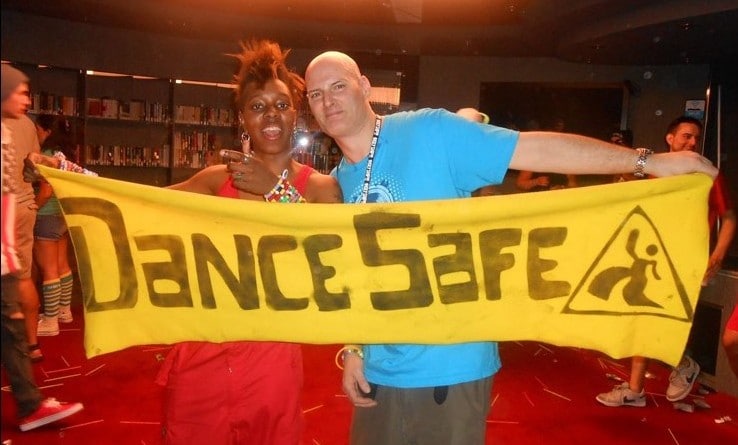Veterans in Canada’s cannabis industry have teamed up to start Field Trip Psychedelics, a for-profit company focused on healing the sick and bettering the well through therapeutic psychedelics. Their ambitious goals include building brick-and-mortar clinics for legal psychedelic therapy, starting a psychedelic research lab in Jamaica, and developing novel drugs from alkaloids and tryptamines derived from psychedelic substances. We recently spoke with Ronan Levy, one of the founders of Field Trip, about their plans to build the infrastructure of legal psychedelic therapy in Canada and beyond.
Thanks for speaking with us, Ronan. Give us an overview of how Field Trip Psychedelics came about and what you’re hoping to accomplish in the psychedelic space.
The team at Field Trip came from the Canadian cannabis industry. We were very early participators in that field and we created two sister companies, one called Canadian Cannabis Clinics and one called CanvasRx. The latter we sole to Aurora Cannabis which is one of the largest legal producers of cannabis worldwide. After we sold Cannabis RX we came across psychedelics as an opportunity, and like most people who think about starting a business in this space, we came up against the wall of them being almost entirely illegal. So we thought, “How do we do something interesting in psychedelics?”
We spent a long time trying to craft a strategy that made sense. As part of that exercise, we realized that psychedelics will almost certainly become legal in some form, whether it be through a ballot initiative or a clinical trial approval, or through constitutional challenge like how cannabis came about in Canada. The infrastructure needed to support the coming wave of using psychedelics to treat mental health is needed. Field Trip is designed to build what we think is the necessary infrastructure to support the reemergence of psychedelics.
The first pillar of what we’re doing is opening psychedelic-focused medical clinics. The Canadian medical cannabis clinics we started have grown to become a network of 30 clinics across Canada, and it was necessary because the infrastructure didn’t exist before then to support access to medical cannabis. When we looked at psychedelics, we realized the same issue would occur. To go through a therapeutic psychedelic experience is quite a long process, and you can’t really expect to go to your GP’s office to have that kind of treatment for MDMA or psilocybin. While psychiatrists are generally well equipped to facilitate these sessions, they are often owner, operator, and sole proprietor, and that doesn’t lend itself to scale. So we realized that a whole new clinic model is needed to support the coming wave of psychedelics. So we are in the process of setting up what will be five flagship clinics focused on psychedelic medicine, starting with ketamine-assisted psychedelic therapy, and then moving into classic psychedelic therapies as they become legal and approved. These locations will be Toronto, New York, LA, Portland, London, and Jamaica.
The second pillar we announced a few weeks ago, and it is the world’s first legal cultivation and research institution for psilocybin producing fungi, which will be in Jamaica. Ultimately we’d like to expand to all plant-based psychedelics, but we’re starting with psilocybin. Looking at all the work that’s been done with cannabis over the last 15 years or so, a lot has advanced in terms of understanding the plant from genetics to strains to cultivation to bioprospecting and novel molecule identification. We expect much like we found in cannabis well over 100 cannabinoids, we’ll find lots of interesting tryptamines and alkaloids in mushrooms other than psilocybin and psilocin.
The third piece is traditional drug development. If we see something interesting or novel in the mushrooms, or other molecules that engage serotonin receptors and offer psychedelic effects, we’ll look to explore clinical trials around them. So essentially we are a vertically integrated business focused on the emerging use of psychedelics to treat mental health conditions.
In addition to building brick and mortar clinics, will you also be training therapists?
Certainly that will be part of it. It’s essential that you have qualified people and medical professionals to facilitate these experiences. Right now, the training around psychedelic-assisted psychotherapy is a bit challenging because many of the current protocols were developed in the 60s and 70s and are quite labor intensive in terms of psychotherapist time. The MAPS clinical trial right now includes something like 84 hours of psychotherapist time for a single patient for a single session. We are exploring ways to offer training on a more efficient and therefore more affordable basis, but that work hasn’t been done yet. We want to optimize this training to enable the most people to access it.
So yes, we plan to do training for sure, but establishing the protocols that can form the foundations of the therapist training still needs to be done. We hope to work with practitioners who are already participating in the clinical trials right now, and underground practitioners who have experience and wisdom in this field as well, and develop a rigorous training program around that.
Many people believe that direct experience with these substances is the most important factor in becoming a good facilitator. Will your training include access to a guided psychedelic-assisted psychotherapy session for the facilitators?
One of our core principles is that we are only doing things that are consistent with law and regulation. If there’s a legal way to provide that opportunity, then certainly. I know MAPS has the expanded access program; to the extent that we can enroll our therapists in that program or other programs that open up, yes. But we are also cautious to make sure we don’t encourage people to engage in illegal behavior, so it’s finding the right balance. It’s certainly beneficial and empathy is so important to understand what people are going through, yet we don’t want to encourage going against existing laws, as misguided as they might be.
Are you looking to develop your own GMP psilocybin [GMP stands for Good Manufacturing Process, which is the quality needed for clinical trials] or sourcing it from somewhere?
We’re not producing any synthetic psilocybin right now. Our focus is on researching the mushrooms, and we may look to do some cultivation at the Jamaican facility to support the local market and community, but we’re taking it one step at a time. The government of Jamaica has been really supportive so far. I think they have some hesitation about this becoming a “Wild West” and it moving too fast, so we want to do it thoughtfully and show that we are good actors.
Ultimately we do want our Jamaican facility to be GMP-compliant so we can be producing psilocybin-containing mushrooms and extracts that are qualified for GMP with a view to supporting clinical trials, and also if there becomes a legal market in Jamaica or beyond, that the quality of the product we produce is safe and fit for people to use. Right now we are not sourcing any GMP psilocybin; we are just sourcing spores to build our genetic library in Jamaica and that’s it.
We recently ran a thought piece on the Medicinal Mushroom Dispensary in Canada which is selling psilocybin mushrooms online. Any thoughts on that?
My perspective is that it’s similar to that of the decriminalization efforts in Denver and Oakland and beyond. I think it’s positive in terms of advancing the dialogue and in terms of helping people access medicine and improve their quality of life. These are laudable ambitions and should be supported in that regard. I can’t help but assume some part of their motivation is to engage the constitutional conversation in Canada in terms of access to these mushrooms. To the extent that it advances the conversation, that’s great, but we don’t know who the suppliers are, and we don’t know what kind of cultivation they have. I’m confident that the product is safe and consistent, but this is the challenge with a grey market or mostly black market—uncertainty, which creates unnecessary risks.
You mentioned that your Jamaicain facility would ultimately be interested in all plant-based psychedelics. Have you looked at ayahuasca at all? As an admixture brew it is notoriously challenging to fit into the scientific research and clinical trial model.
It’s on our radar but that’s about the extent of it; we have not actively thought about how to work with it yet. For now, we’re focused just on psilocybin-producing fungi. So yes, we’ve thought about it, but that would be down the road for us.
I’m sure you have your hands full right now. Take us into an ideal future for psychedelics and Field Trip. How does this all happen in the best way possible?
An ideal future looks a lot like what you see in Canada around cannabis. There’s a medical program that’s highly supervised with licensed administration overseen by a psychiatrist, and then there’s a wellness program that doesn’t require people to be in a disease state. That’s one of the challenges with modern medicine: it requires you to have a clinically diagnosed condition. It would be unfortunate if only people with diagnosed states like PTSD, depression, OCD, and so on could access psychedelic treatments. They have profound potential to “better the well” and expand creativity and understanding and caring for the environment. If you keep it as a solely medicalized program, then all the people who don’t meet the clinical definition of having some kind of disease will be excluded from it. So a future with a plethora of modalities, whether it’s medical, wellness—with a range of different options, synthetic pharmaceutical ones and organic fungal mushrooms products—that’s the ideal future. There’s acceptance and regulation and respect, and strong education so people understand what they are getting into and what to expect. By and large that’s what you see in Canadian cannabis with a robust medical program and an adult usage market. For psychedelics, the adult usage would have to be perhaps a bit more carefully done than cannabis, but I think it’s a good model to look at.
We are very grateful to Ronan for taking the time to speak with us. Stay tuned for our second interview around the for-profit model and ensuring access to underserved communities.












Dear Psychedelic Times,
Are there plans to have a psychedelic seminar in the Chicago area in 2020?
Julie Brandenburg, PhD
Clinical Psychologist